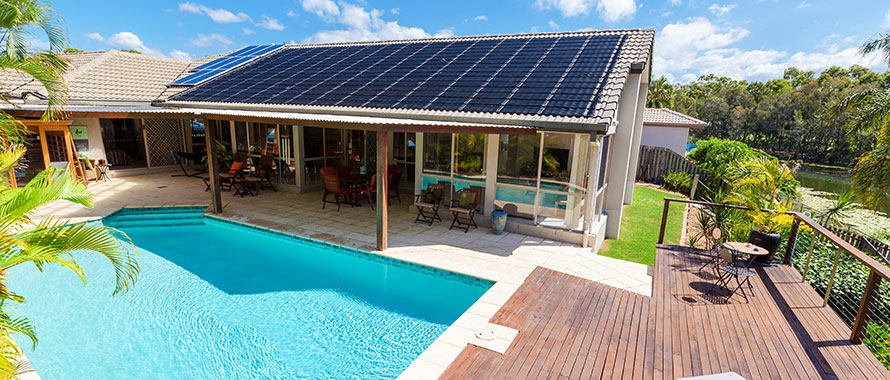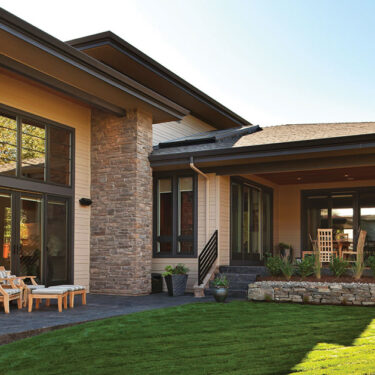In communities across the U.S., home prices are soaring so high in some areas that priced-out residents are moving to regions with a lower cost of living, Fox Business recently reported. Average rent prices are also up, with the most significant increases — each over 25% in the past year — seen in cities such as Miami, Tampa and Phoenix, data from Zillow indicates.
In Hubbard County, Minnesota, for instance, the county assessor warned in a recent report that homeowners can expect a “substantial increase” in their property valuation notices this year. The rise in values is unprecedented and has not been seen in recent history, the assessor said.
“Values are rising at a ridiculously high percentage,” said Pamela Alphabet, Regional Practice Group Leader, Personal Insurance, Burns & Wilcox, Scottsdale, Arizona. “It is good for homeowners and bad for those who are buying.”
Featured Solutions
When values increase, homeowners could be at higher risk for being underinsured on their Homeowners Insurance, said Anella Niewenhous, Associate Vice President, Regional Practice Group Leader, Personal Insurance, Burns & Wilcox, Morehead City, North Carolina.
“There has been a huge increase in values,” she said. “This brings to light the difference between market value and replacement costs, because what you pay for a home is not exactly what it costs to rebuild it.”
Insurance policy must reflect accurate cost to rebuild
The current rise in home prices has resulted in the lowest level of housing affordability in the U.S. since 2008, Reuters recently reported. Bidding wars are increasingly common, and over half of U.S. homes sold in January were purchased for more than their list price, according to the Associated Press. Regardless of the price a buyer pays for a home, however, the most important factor for Homeowners Insurance is the amount it would cost to rebuild the home, Niewenhous pointed out.

There has been a huge increase in values. This brings to light the difference between market value and replacement costs, because what you pay for a home is not exactly what it costs to rebuild it.
“If the house was to burn down tomorrow and you had to rebuild it with the same or like materials, that is the rebuilding cost,” she said. “We have definitely seen some cases where what you are paying for a house may not be what it is insured for. You could be overpaying for a house or have it insured for less than what you paid for it because of the supply and demand in real estate right now.”
The same principle could also apply in the opposite direction, Niewenhous said. “You could buy a house for $1.2 million, and then you get your insurance inspection done and they could tell you that it should be insured for $1.7 million,” she said. “What you are buying the house for has nothing to do with what it costs to rebuild it in the event there is a claim.”
Those costs will generally increase each year and may be rising faster than usual in some areas. The cost of rebuilding was up 11.5% in the state of New York in January of 2022 compared to January of 2021, the highest increase of any state, and increased by an average of 7.2% nationally, Newsday recently reported. In Canada, residential construction costs rose 3.8% in the fourth quarter of 2021, with higher prices on wood, plastics and composites contributing most to the increase, according to Statistics Canada.
Lumber prices have decreased somewhat from their previous surge, Niewenhous said, but challenges accessing certain supplies remain. Labor shortages and construction delays may also have an impact. “All of that goes into what makes up the replacement cost,” she said.

If you were insured at $250,000 five years ago, what $250,000 would get you five years ago versus today are two very different things. That refrigerator that cost $1,000 could now be $2,500.
Without the correct rebuilding cost on a Homeowners Insurance policy, a homeowner who has a loss could have to pay out of pocket for the gap or accept a lower standard of building materials when repairs are made. To avoid this, all homeowners should review their Homeowners Insurance with their broker at least annually, Niewenhous recommended.
“Once a year, you should evaluate your insurance coverages with your broker around the time of a renewal and make sure you are in the right ballpark,” she said. “You do not want to get stuck in a situation where your value has increased over the span of five years, you have not continued to keep up with the changing building costs, and then you are left with what you would consider substandard materials compared to what you had because that is what you had your home insured at. If you were insured at $250,000 five years ago, what $250,000 would get you five years ago versus today are two very different things. That refrigerator that cost $1,000 could now be $2,500.”
Notify insurance carrier about solar panels, other upgrades
Another impact of rising home prices could be a surge in remodeling projects among homeowners. In the second quarter of 2021, one Canadian lender reported a 30% uptick in home renovation loan applications compared to the first quarter of 2021, BusinessWire reported. More U.S. homeowners are taking on renovations, as well, with a recent LightStream survey showing that 44% of homeowners are planning home projects in 2022 versus 39% in 2021.

I think [home renovation] is a growing trend. … Even if you get a good price for your home, where are you going to go? The supply is small and the demand is great.
Homeowners appear to be “investing more in their homes and staying put,” Alphabet said.
“I think it is a growing trend,” she said. “It is not like you can easily sell and upgrade anymore, because you have to be spending so much more. Even if you get a good price for your home, where are you going to go? The supply is small and the demand is great.”
For an expanding number of homeowners, these projects could include efforts to “go green,” like installing solar panels. States like Arizona, California and Florida are in the midst of a solar panel installation “craze,” Property Casualty 360 recently reported, pointing to data showing that U.S. solar installations almost doubled last year.
“I see it more and more, especially in the sunnier places,” Alphabet said. “Electrical costs are going up, and individuals tend to want to be more green or environmentally friendly today in terms of powering their homes. It can lower the cost of your electricity and lets you do something better for the environment.”
The panels will usually need to be permanently attached to the roof to be covered as part of the dwelling on a Homeowners Insurance policy, she said. Homeowners should also check whether their insurance carrier has any limitations on solar panel coverage, such as excluding damage to solar panels from wind or hail. In some cases, solar panels could be associated with an increased fire risk or pose a shock hazard to firefighters, she said.
“Homeowners really need to do their research and make sure they find a reputable company to install the solar panels,” Alphabet said. “They should also increase their Homeowners Insurance coverage, because adding solar panels does increase the value of your home.”
Talk to insurance broker before home projects begin
Before beginning work on a home renovation project, homeowners should speak with their insurance broker to find out whether they need Course of Construction Insurance or Builder’s Risk Insurance, which can help protect the home while it is under construction, Alphabet said.
“You also want to make sure that the workers are insured, because if not, you are going to be liable for them on your property,” she said. “There is also the risk of theft of building materials. There are many considerations to having work done on your home.”

Homeowners really need to do their research and make sure they find a reputable company to install the solar panels. They should also increase their Homeowners Insurance coverage, because adding solar panels does increase the value of your home.
While most homeowners understand the importance of Homeowners Insurance in covering property damage and liability claims, the role of valuations and rebuilding costs is an aspect of the policy that is often misunderstood, Niewenhous said. “Replacement cost is to get you whole again,” she said. “That is the whole point of insurance; to make you whole in the event of a loss. It can be a difficult thing for homeowners to understand and a good retail broker should be able to explain it.”
Some insurance carriers have automatic inflation on their policies that apply each year at renewal. ”Some of them do not,” Niewenhous added. “That is where that yearly review really comes into play. Every year, costs go up. If you are not continuing to increase the values on at least a yearly basis, you are doing yourself a disservice.”
When reviewing your Homeowners Insurance policy each year, be prepared to discuss any updates or additions to your home. Even smaller upgrades can affect the value and cost to rebuild, Niewenhous said.
That review process is critical, as it gives homeowners a chance to avoid the distress of an underinsured loss, Alphabet said. “A lot of homeowners renovate their kitchen or bathroom assuming they will make that investment back and then some, but if they are not insuring them, nobody is going to know that, and at the time of a loss, you just are not going to have the proper coverage,” she said.





